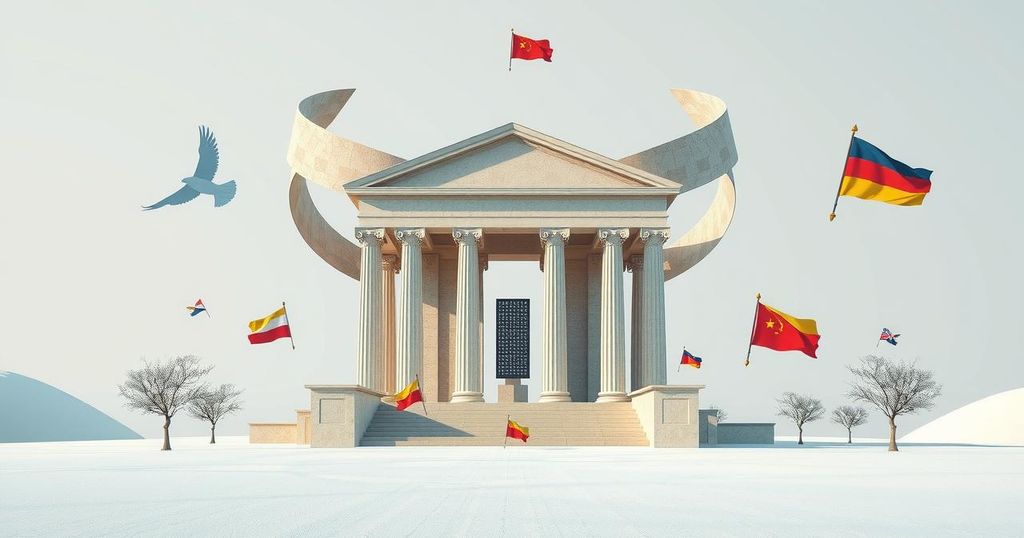Mozambique’s Venâncio Mondlane Open to Collaborate with President Chapo
Venâncio Mondlane, the opposition leader of Mozambique, is open to serving in President Daniel Chapo’s government, conditioned on specific reforms to address the political crisis following disputed elections. The discussions suggest a potential reconciliation, with both leaders aiming for inclusivity and reforms to tackle serious electoral issues, human rights, and economic development.
Venâncio Mondlane, Mozambique’s opposition leader, recently expressed his willingness to serve in President Daniel Chapo’s government if certain conditions are met to resolve the nation’s political crisis stemming from disputed elections. Chapo has assembled a team to consider the potential invitation for Mondlane to join a new inclusive government. Both leaders shared their positions in interviews with the BBC, suggesting a possibility for reconciliation following significant unrest that resulted in approximately 300 fatalities.
Mondlane has rejected the October election results, claiming they were manipulated—a charge denied by Chapo. According to Mozambique’s highest court, Chapo was declared the winner with 65% of the vote compared to Mondlane’s 24%. Chapo, representing the ruling Frelimo party, succeeded Filipe Nyusi, who had to step down after serving two terms. Chapo was sworn in as president on January 15, just one week after Mondlane held a self-proclaimed inauguration as the “people’s president.”
Despite stating that Chapo was imposed upon the nation as the “president of the defence force,” Mondlane has decided to suspend protests for the initial 100 days of Chapo’s presidency on the condition that he fulfills specific demands. These include the unconditional release of around 5,000 individuals detained for protesting the election results, compensating the families of those killed by police during the protests, and providing medical care for 200 injured individuals. Should Chapo agree to these terms, Mondlane indicated he would open pathways for dialogue, unless he is compelled to reignite protests.
When questioned about his openness to working in Chapo’s government, Mondlane affirmed, “Yes, if he has a genuine interest to work with me. He’s got a chance to invite me to the table of dialogue.” In response, Chapo stated his desire to govern inclusively, aiming to implement reforms addressing electoral law concerns, human rights, and freedoms. He mentioned ongoing discussions with opposition parties and a future intention to engage all societal segments in the conversation.
Chapo underscored the importance of merit and patriotism in selecting government officials, indicating that it would depend on the assessment of his team regarding any candidate’s qualifications. He aspires to bolster local and foreign investment in Mozambique, which he believes will stimulate economic growth and create employment opportunities for the youth. Both leaders recognize the significant support Mondlane commands among young citizens—a demographic he engaged actively during the election campaign with the slogan “Save Mozambique – this country is ours.”
The political climate in Mozambique has been tense following the controversial October elections that resulted in allegations of rigging and subsequent unrest, leading to the deaths of hundreds. Venâncio Mondlane, the main opposition leader, believes that the election results were unfair, while President Daniel Chapo, representing the ruling Frelimo party, has denied these claims. Chapo’s administration is now looking to form a government that could include participation from the opposition, reflecting a shift towards potential reconciliation.
This dialogue between Venâncio Mondlane and President Daniel Chapo illustrates an opportunity for political reconciliation in Mozambique amid a backdrop of recent unrest. Mondlane’s willingness to join Chapo’s government is contingent on the fulfillment of his demands, emphasizing the need for electoral reform and accountability. Both leaders recognize the importance of engaging young people and promoting inclusivity in governance to strengthen Mozambique’s political stability.
Original Source: www.bbc.com




Post Comment